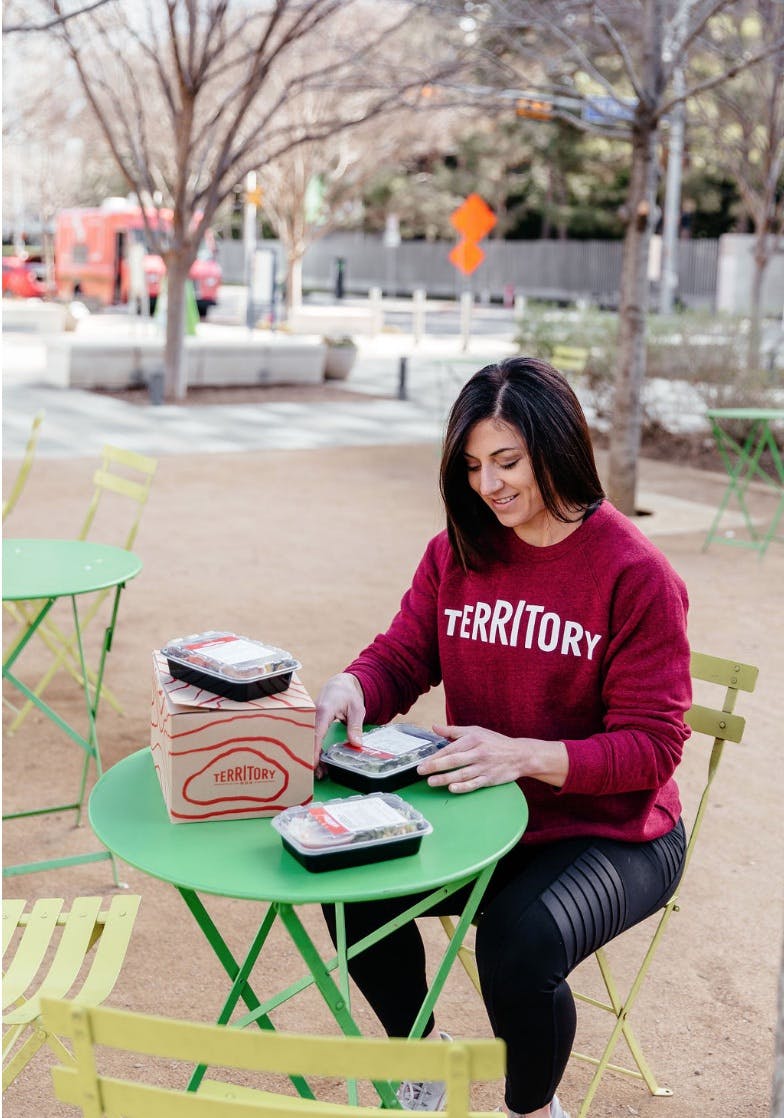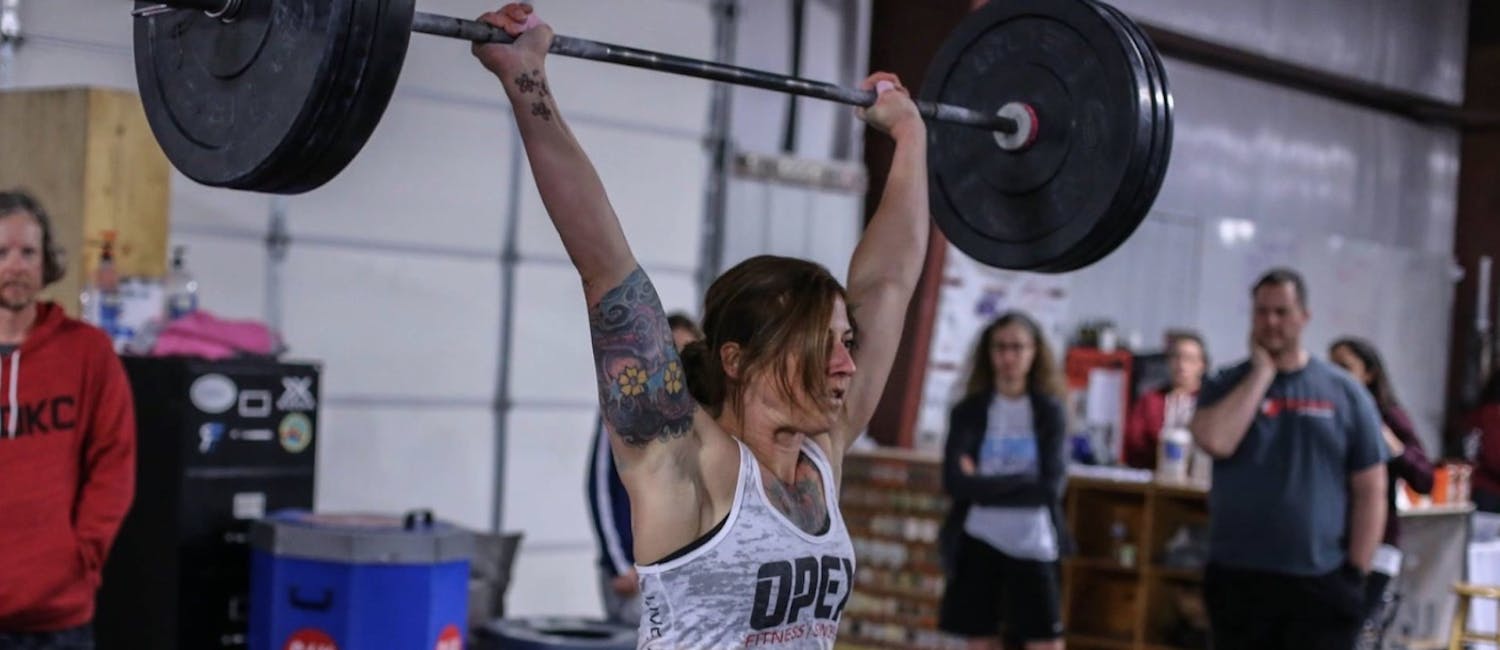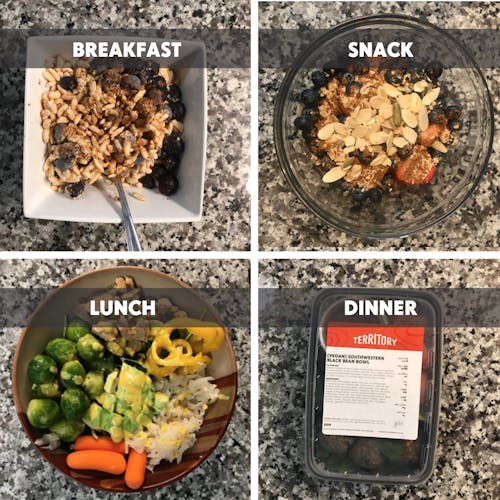
The Life of A Plant-Powered Athlete
By Carina Morgan
April 3, 2019
Likely the number one thing people wonder about when considering a more plant-based approach to their diet is PROTEIN. And especially for those in our community who are super dialed in on the movement part of their lives, protein is a major consideration – and rightfully so! It’s an important part of the puzzle.
Here to help shed some light on the “I’m super active, how could I keep up with a plant-based diet” concern, is very our own plant-powered athlete. DFW Community Engager, Lindsay Smith is a competitive athlete who’s powered by a vegan diet. She was gracious enough to let me interview her to give you a better idea of what it looks like to be a meat-free, high-level athlete.
Thanks so much for taking the time to chat with me, Lindsay. To kick things off, let’s start with the basics. How long have you been plant-based and what drove you to pursue a plant-based lifestyle?
I’ve been vegan for almost exactly one year, and played around with a vegetarian lifestyle for several years before that. I started my transition to a plant-based lifestyle in 2011 and have slowly cut more and more animal products out of my diet until 2018, when I took the leap into being 100% plants.
The three main reasons I have gone the plant-based route are for animal welfare, environmental considerations, and health concerns. All three contributed to my decision to go meat-free. I saw a documentary in 2011 that made me really consider the impact of consuming animal products on our quality of life. Then I took an environmental course that detailed the environmental impact of animal vs plant consumption.
I’ve also struggled with chronic inflammation and food sensitivities for a long time, and I took a food sensitivity test that led me away from most of the animal products I was consuming. So, I decided it was time to go all-in with a plant-based diet.
I grew up super active – I was raised on a lot of land, so we were always outside. I’d run around our land, ride horses, and basically find any reason to be active outside.
When I got older, I got really involved in basketball, track, and cross country. I also cheered through high school, but basketball was my biggest passion when it came to sports.
I didn’t play college athletics, but I got more into long distance running to stay in shape. After I graduated college, I joined the military and ended up finding CrossFit in 2009.

I really found my passion for competition with CrossFit. After deployment, I started competing regularly. I was on a Grid team for awhile, and trained on a few regionals teams here in Dallas at CrossFit Deep. Eventually, I got a little burnt out from competing in CrossFit (it was hard on my body), so I recently retired. I’ve always had a dream of doing a figure competition, so that’s my next (and maybe final?) competitive endeavor!
I would say I have to spend more time being strategic about getting all of the nutrients that I need – ensuring a balanced combination of protein, fats, and carbs without overdoing it on specific foods or consuming a ton of protein powders.
It’s definitely not as easy or convenient to be a plant-based athlete, but the biggest learning curve was at the beginning. With my activity level, It took me about 3 months to figure out how to make this style of eating work, but I had some help from a friend who is also a plant-based athlete and was able to give me some guidance.
I try not to eye-roll. Kidding, but I do think it’s important for people to understand that plants are protein-packed! We are so conditioned in our society to think of animals when we think of protein, but the reality is that A LOT of plant-based products contain plenty of protein.
Google vegan bodybuilder youtube videos and you’ll see what I’m talking about.
Ok, let’s bring this to life. Walk us through what a day of eating looks like for you.

- For breakfast: gluten free oats with blueberries, cinnamon, maple syrup and peanut butter – or some combination of those ingredients … paired with black coffee, of course.
- Lunch is normally tempeh with all the veggies with turmeric and sauerkraut.
- For dinner I’ll either have one of the Territory vegan meals or some kind of legume and vegetable!
- Go-to snacks are berries, pumpkin seeds, carrots, rice cakes, celery, and peanut butter.
I’m one of those people who can eat the same thing most days, so it’s not a TON of variety, but it keeps me full, packs plenty of protein, and is delicious to me!
So to go along with that, do you take any supplements to prevent deficiencies?
I am really big on using supplements as they were intended – to supplement the diet where you can’t get what you need through food. I think it’s really important for people to know, especially if they are considering going plant-based, that the smartest thing to do is to get a blood test to know where you even have deficiencies and what you are at risk for, rather than just Googling common vegan deficiencies and stocking up on all of the recommended supplements. We all have unique needs.
Personally, I take enzymes for digestion, and then I take B12 liquid, Vitamin C, Vitamin D3 with calcium, and iron to prevent deficiencies, based on the results from my personal blood testing.
The best thing I can say is to reach out to a vegan athlete to help guide you. It was insanely helpful for me to have my friend guiding me towards what I should be doing and looking for.
There are also SO many food demos on youtube and pinterest – I’ve found especially helpful content on YouTube. One person I love to follow is the Fit Vegan Chef youtube channel – she’s also a bodybuilder, so she has great insight on how to get the right macros eating a plant-based diet.
Lastly, I’d say do your research before you start. Jumping into a plant-based lifestyle is trickier than it may seem, and you could be setting yourself up to eat a bunch of processed vegan junk food because you aren’t prepared for the transition. The processed foods, even if they are vegan, are still processed foods. You’re better off spending some time researching and following a more whole-foods approach for long-term health.
What is your main goal in maintaining a plant-based diet?
I feel like I’m making a difference in the world, even if it’s small. I also want to lead by example, showing people that there is more than one way to eat well.
I don’t want people to think I’m trying to sway people them one way or the other, ultimately the decision is personal. But, for me, I feel better eating the way I do now. I feel more connected to my food, I’m physically less inflamed, and I’ve mentally improved my relationship with food because of that increased connection.
Popular Posts
Foods to Avoid When Taking GLP-1 Weight Loss Medications
April 25, 2025
Tips for GLP-1 Success: Healthy Habits to Practice on Weight Loss Medication
March 6, 2025
How to Go Gluten-Free: A Beginners Guide to Starting a Gluten-Free Diet
November 21, 2024
A Guide to Snacking on a Gluten-Free Diet
November 12, 2024